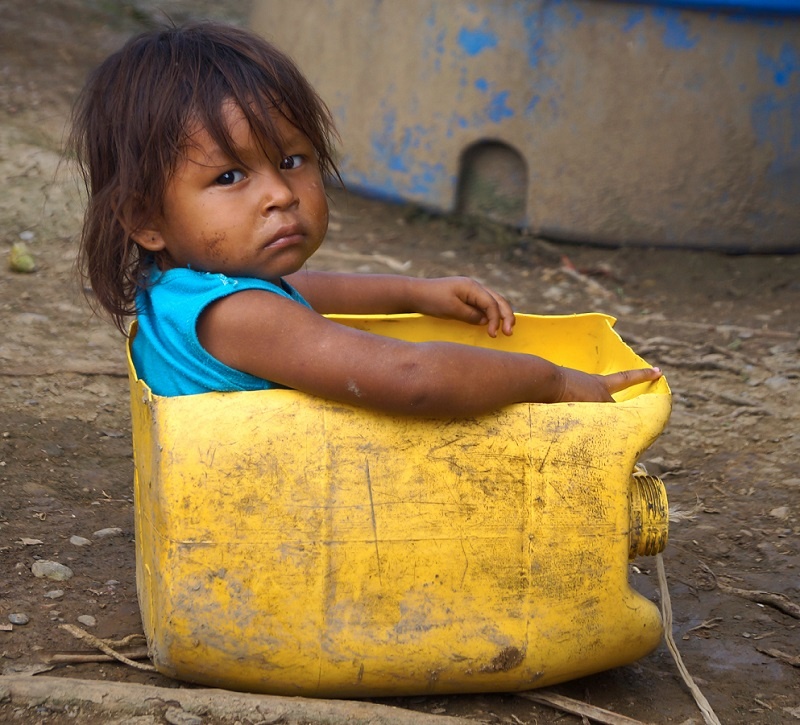The bright sun warmed my face as I returned from celebrating Mass at one of the parish substations. The sound of the bicycle tires humming over the pavement and the low clicking of the chain lulled me into a reflective mood.
As I pedaled, I thought of my family in Ghana and of my decision to become a Divine Word Missionary. The death of one of my sisters and then of my father were painful times during the early years of my extended formation. I persevered with my studies and training and professed perpetual vows in 2006. Ordination followed in 2007.
When I received my mission assignment to Colombia, I wondered how I would be able to learn and become fluent in Spanish. My friends and family members asked me why I chose Colombia and not another country. To their worries, I replied, “People are living there; I can live there too.” And it is true; I have encountered life in Cali, Colombia, and accept the challenges and risks of working here.
In spite of my doubts, I did learn Spanish and arrived in Our Lady of Mercy Parish in 2009. Divine Word Missionaries began to serve the parish in 2002. In addition to the main parish church, there are two substations located in the eleven suburbs of Cali that make up the territory of the parish.
Unemployment and poverty are persistent problems. Violence and drugs are our greatest challenges. Sometimes people are displaced because they have been directly threatened or have moved away from danger. Teenage youth are most affected, but all the people of the city are in one way or another.
This includes even me. One Sunday afternoon, I was about to enter the parish residence. Suddenly, a boy who was not more than fifteen years old came up behind me and put a pistol to my head. “Give me your money or I will shoot you,” he demanded. He searched my pockets and when his fingers touched my wallet, he lost his concentration. I took advantage of that moment by taking hold of his hand. We struggled, and I finally took away his loaded pistol.
Afterward, I went into our residence and prepared something to eat. When I tried to put food in my mouth, the fork with the food hit my lips and chin, but missed my mouth. I realized that I was still shaking!
About a year later, I learned that the boy had been killed. Violence creates more enemies and revenge creates a vicious circle that never seems to end. Some family members are complicit in protecting their own. Other people are immobilized by fear and frustration. It is a very complicated issue.
There is hope, however, because the majority of people are good. In our parish, people of all ages respond generously by sharing in pastoral works and participating in efforts to improve the wellbeing of the wider community. I believe that a well-formed laity is a blessing and an asset to a parish.
In 2010, the Archdiocese of Cali renewed its emphasis on evangelization by forming lay missionary groups in the parishes. I am proud to say that the group in Our Lady of Mercy parish has passed the test of time. We began with more than seventy lay missionaries and still have thirty people actively involved. Each Sunday the lay missionaries gather for prayer, reading the Word of God, and shared reflections. Afterward they visit homes to speak about the Word of God and invite the residents to Monday meetings where, together with others, people can deepen their faith and commitment to the Christian life with prayer and the Scriptures.
Our Lady receives a warm welcome into many homes during the months of May and October through the Pilgrim Virgin home visitation program. Families gather in various sectors of the parish to pray the rosary and join in the celebration of the Eucharist.
While young people are preparing to receive First Communion, first reconciliation, and confirmation, we ask their parents to commit themselves to the formation of their children and themselves. The parents meet together once a month with pastoral leaders and resource persons, such as psychologists, to focus on the Catholic faith, personal relationships, the home and family life, and Christian values.
Some youth from ages nine to fifteen are even eager to become catechists so they can share what they have learned with their younger sisters and brothers. We have an annual celebration to recognize and thank our altar servers. During the year, they look forward to assisting at Masses, and frequently, our servers go with adult mentors to visit the elderly in their homes. These activities are times when we can encourage the children and youth to think about the priesthood or religious life.
There are many couples who have not had the opportunity to receive the sacrament of matrimony. I am committed to helping couples receive the proper validation of their relationship in the Church through that sacrament.
Buen Samaritano (Good Samaritan) is the name of the parish social apostolate. The ten people who are part of Buen Samaritano are willing to dedicate part of every Saturday to this special work. They go through the streets of our suburbs with a three-wheeled, bicycle-style cart, knock on doors, and ask for help from the community. Then on Wednesdays, some of the members go to the food bank of the archdiocese to buy grains, vegetables, or whatever the food bank has that day. These items supplement what is received on Saturdays. About eighteen to twenty-five individuals and families come on Wednesday to take home some food items for a token offering. Every two months, a different group of people receives food from Buen Samaritano.
With all these thoughts, my bike ride to the parish residence passed quickly. I had a little time before welcoming our lay missionaries for their Sunday meeting. Together with them and so many other people, I continue to encounter life in Cali. We thank God for his goodness to us!








